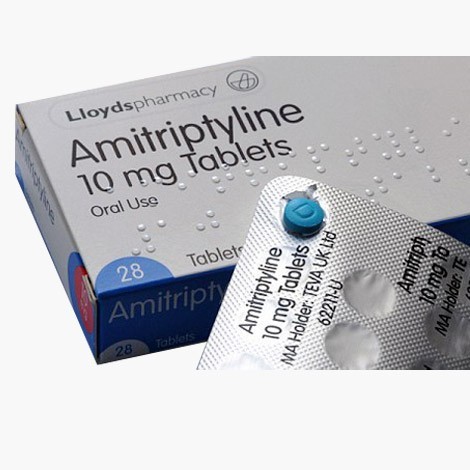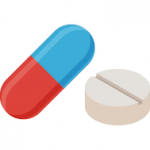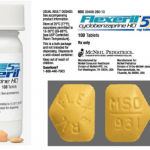Why was Elavil (Amitriptyline) Discontinued?

What is Elavil?
Elavil (amitriptyline) is a tricyclic antidepressant with sedative effects. Amitriptyline affects certain chemical messengers (neurotransmitters) that communicate between brain cells and help regulate mood. Elavil is a prescription medicine used to treat symptoms of depression.
Amitriptyline was first developed by the American pharmaceutical company Merck in the late 1950s. In 1958, Merck approached a number of clinical investigators proposing to conduct clinical trials of amitriptyline for schizophrenia. One of these researchers, Frank Ayd, instead, suggested using amitriptyline for depression. Ayd treated 130 patients and, in 1960, reported that amitriptyline had antidepressant properties similar to another, and the only known at the time, tricyclic antidepressant imipramine. Following this, the US Food and Drug Administration approved amitriptyline for depression in 1961.
In Europe, due to a quirk of the patent law at the time allowing patents only on the chemical synthesis but not on the drug itself, Roche and Lundbeck were able to independently develop and market amitriptyline in the early 1960s.
According to research by the historian of psychopharmacology David Healy, amitriptyline became a much bigger selling drug than its precursor imipramine because of two factors. First, amitriptyline has a much stronger anxiolytic effect. Second, Merck conducted a marketing campaign to raise clinicians’ awareness of depression as a clinical entity.

Why was Elavil Discontinued?
Elavil was discontinued after the FDA recommended the withdrawal of the drug in 2000 following reports that it increased the risk of heart problems and other side effects. Taking amitriptyline alongside cisapride further increases the risk of heart arrhythmias and other serious cardiac events.
Senteni Masango, the wife of Swaziland King Mswati, died on 6 April 2018 after committing suicide by overdosing on 40 amitriptyline capsules. However, doctors may still prescribe the drug, but only in rare cases when it is necessary.
Amitriptyline side effects
Along with its needed effects, amitriptyline may cause some unwanted effects. Although not all of these side effects may occur, if they do occur they may need medical attention.
Check with your doctor immediately if any of the following side effects occur:
Incidence not known
• Abdominal or stomach pain
• agitation
• black, tarry stools
• bleeding gums
• blood in urine or stools
• blurred vision
• burning, crawling, itching, numbness, prickling, “pins and needles”, or tingling feelings
• change in consciousness
• changes in patterns and rhythms of speech
• chest pain or discomfort
• chills
• cold sweats
• coma
• confusion
• confusion about identity, place, and time
• continuing ringing, buzzing, or other unexplained noise in ears
• convulsions
• cool, pale skin
• cough or hoarseness
• dark urine
• decrease in the frequency of urination
• decrease in urine volume
• decreased urine output
• difficulty in breathing
• difficulty in passing urine (dribbling)
• difficulty in speaking
• disturbance of accommodation
• disturbed concentration
• dizziness, faintness, or lightheadedness when getting up from a lying or sitting position suddenly
• double vision
• drooling
• dry mouth
• excitement
• fainting
• false beliefs that cannot be changed by facts
• fast, slow, or irregular heartbeat
• fear or nervousness
• fever with or without chills
• flushed, dry skin
• fruit-like breath odor
• general feeling of tiredness or weakness
• headache
• hearing loss
• high fever
• high or low blood pressure
• hostility
• inability to move arms, legs, or facial muscles
• inability to speak
• increased hunger
• increased need to urinate
• increased ocular pressure
• increased sweating
• increased thirst
• increased urination
• irritability
• lack of coordination
• lethargy
• light-colored stools
• lip smacking or puckering
• loss of appetite
• loss of balance control
• loss of bladder control
• loss of consciousness
• lower back or side pain
• mental depression or anxiety
• muscle spasm or jerking of all extremities
• muscle tightness
• muscle trembling, jerking, or stiffness
• muscle twitching
• nausea and vomiting
• nightmares or unusually vivid dreams
• overactive reflexes
• painful or difficult urination
• passing urine more often
• pinpoint red spots on the skin
• poor coordination
• pounding in the ears
• puffing of cheeks
• rapid or worm-like movements of the tongue
• rapid weight gain
• restlessness
• seeing, hearing or feeling things that are not there
• seizures
• severe muscle stiffness
• shakiness and unsteady walk
• shivering
• shortness of breath
• shuffling walk
• sleeplessness
• slow speech
• slurred speech
• sore throat
• sores, ulcers, or white spots on lips or in the mouth
• stiffness of limbs
• stupor
• sudden loss of consciousness
• sweating
• swelling of face, ankles, or hands
• swelling or puffiness of the face
• swollen glands
• talking or acting with excitement you cannot control
• trouble in speaking
• trouble sleeping
• troubled breathing
• twisting movements of body pain or discomfort in arms, jaw, back, or neck
• unable to sleep
• uncontrolled chewing movements
• uncontrolled movements, especially of arms, face, neck, back, and legs
• unexplained weight loss
• unpleasant breath odor
• unsteadiness, trembling, or other problems with muscle control or coordination
• unusual bleeding or bruising
• unusual tiredness or weakness
• unusually pale skin
• upper right abdominal pain
• vomiting of blood
• weakness in arms, hands, legs, or feet
• weight gain or loss
• yellow eyes and skin
Get emergency help immediately if any of the following symptoms of overdose occur:
Symptoms of Overdose
• Clumsiness
• drowsiness
• low body temperature
• muscle aches
• muscle weakness
• sleepiness
• tiredness
• weak or feeble pulse
Some side effects may occur that usually do not need medical attention. These side effects may go away during treatment as your body adjusts to the medicine. Also, your health care professional may be able to tell you about ways to prevent or reduce some of these side effects. Check with your health care professional if any of the following side effects continue or are bothersome or if you have any questions about them:
Incidence not known
• Bigger, dilated, or enlarged pupils (black part of the eye)
• black tongue
• bloating
• breast enlargement in females
• constipation
• decreased interest in sexual intercourse
• diarrhea
• hair loss, thinning of hair
• hives or welts
• inability to have or keep an erection
• increased in sexual ability, desire, drive, or performance
• increased interest in sexual intercourse
• increased sensitivity of eyes to light
• loss in sexual ability, desire, drive, or performance
• loss of sense of taste
• redness or other discoloration of the skin
• severe sunburn
• skin rash
• swelling of testicles
• swelling of the breasts or breast soreness in males
• swelling of the parotid glands
• swelling or inflammation of the mouth
• unexpected or excess milk flow from breasts
Other side effects not listed may also occur in some patients. If you notice any other effects, check with your healthcare professional.
Call your doctor for medical advice about side effects. You may report side effects to the FDA at 1-800-FDA-1088.





